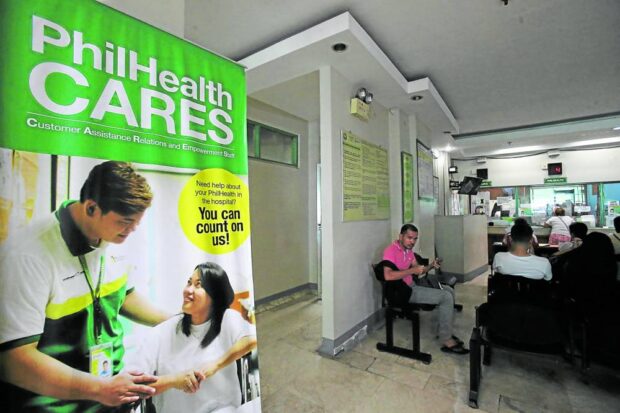PhilHealth to test new payment scheme for primary care providers
MANILA, Philippines — Starting next month, the government-run Philippine Health Insurance Corp. (PhilHealth) will pilot-test a new payment scheme wherein accredited primary care providers will receive funding from the state insurer even before patients avail themselves of healthcare services.
The “frontloading” scheme veers from the corruption-tainted interim reimbursement mechanism (IRM) used by PhilHealth in paying healthcare providers for services given to its members.
In a press conference on Monday, Health Secretary Teodoro Herbosa said the new scheme was meant to avert financial losses due to fraudulent claims and “ghost” memberships.
In its 2020 report, the Commission on Audit flagged PhilHealth’s IRM for making P14.97 billion in payments to 711 healthcare institutions before their services were completed.
“We cannot do a nationwide implementation immediately. We want to understand how this [would] evolve… and learn how the public [would] utilize this… then slowly, we improve and correct [it],” Herbosa said.
Through a service-level agreement, a “capitation fee” of P500 a year for every registered patient will be allotted to a public health facility, while P750 per enrolled patient will be given to private clinics, said PhilHealth senior vice president Renato Limsiaco Jr. It will cover only basic laboratory and diagnostic tests as well as essential medicines.
Capitation is a payment arrangement used in the healthcare industry wherein a set amount for each eligible member is given to a provider to cover a period of time, whether or not that person seeks care services.
Under this system, Limsiaco said, local governments would also feel less burdened by advancing the cost of providing healthcare services.
The new arrangement will be implemented initially in public health facilities in Bataan, Guimaras, Quezon, and South Cotabato provinces as well as in Baguio City. PhilHealth also partnered with private healthcare providers LiFE group and Ayala-led QualiMed for the program.
An initial P1.2 billion will be disbursed to the health facilities and around 2.3 million patients are seen to benefit from the pilot test.
Drawbacks
Marikina Rep. Stella Quimbo, also in the press briefing, said that a barangay health center, for example, must ensure that every peso of the PhilHealth funds is spent even if other registered patients in its jurisdiction are not able to avail themselves of services for an entire year.
“Ideally, if there are enrolled (PhilHealth members who) did not get sick, the funds should still be distributed because it can be [used] to cover others [needing more services] because P500 per patient is not enough,” she pointed out.
To prevent any irregularities, safeguards must be strengthened in the patient registration process, Quimbo noted.
In a statement, PhilHealth acting president and CEO Emmanuel Ledesma Jr. called the “close-ended, prepaid capitation” a game changer in primary care financing.
However, according to a policy brief by the Organization for Economic Cooperation and Development (OECD), capitation payments “control costs better but can encourage providers to deliver less health care than optimal for patients.”
Most OECD member countries, it said, use “blended form of payments,” including mixing capitation with “fee for service” payments, or better known as reimbursement.
“In primary care, nearly all OECD countries that use capitation adjust the payment for risk factors (for example, age, gender, health status) to discourage skimping of care and ‘cherry-picking’ [of patients],” it said.
A 2016 study published in the US National Library of Medicine also found that capitation payment “drives down cost and serves as a critical source of income for providers,” but “induces reduction in the quantity and quality of care” given to patients.
